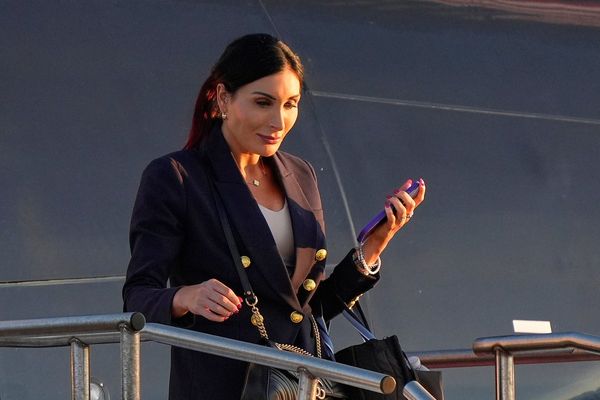
Southeast Asian nations have told Myanmar’s military government its plan to hold an election amid an escalating civil war should not be its priority, urging it to start dialogue and end hostilities immediately.
The foreign ministers of the Association of Southeast Asian Nations (ASEAN) on Sunday called on the warring sides in member nation Myanmar to stop the fighting and told its representative to allow unhindered humanitarian access, host Malaysia’s foreign minister said.
“Malaysia wants to know what Myanmar has in mind,” Mohamad Hasan told a news conference after a ministerial retreat on the island of Langkawi.
Hasan said Myanmar – represented by a low-level official from the Ministry of Foreign Affairs after its military leaders were barred from formal ASEAN meetings – briefed the gathering about plans for a general election this year. But the bloc wants Myanmar’s government to ensure peace before any polls are held, he said.
“We said the election has to be inclusive. The election cannot be in isolation, it has to involve all stakeholders,” he said. “We told them the election is not our priority. Our priority is to stop the violence.”
Myanmar has been in turmoil since early 2021 when its military overthrew the elected civilian government of Nobel laureate Aung San Suu Kyi, triggering pro-democracy protests that morphed into a widening armed rebellion that has taken over swaths of the country.
Despite being battered on multiple fronts, its economy in tatters and dozens of political parties banned, the military government plans to hold an election this year, which critics have widely derided as a sham to keep the generals in power through proxies.
Malaysia, chair of the 10-member bloc this year, announced the appointment of former diplomat Othman Hashim as special envoy on the crisis in Myanmar, where the United Nations says humanitarian needs are at “alarming levels”, with nearly 20 million people – more than a third of the population – needing help.
Mohamad said Hashim would visit Myanmar “soon” to convince all sides in Myanmar to implement ASEAN’s five-point peace plan, which has made no progress since it was unveiled months after the coup.
Regional tensions on the agenda
Hasan said the meeting also discussed the likely implications of the second term of incoming US President Donald Trump on the region amid its rivalry with China.
He said the ministers raised concerns that competition between the two superpowers may increase regional tensions. He said ASEAN ministers stressed the urgency to bolster regional unity and make economic integration a top priority amid the global uncertainties.
Tensions in the South China Sea, one of the world’s vital shipping lanes with about $3 trillion of annual ship-borne trade, were also high on the agenda following violent confrontations in the waters last year.
Vietnam and Malaysia have also protested over the conduct of Chinese vessels in their exclusive economic zones, which Beijing says are operating lawfully in its waters.
China claims sovereignty over most of the South China Sea. But ASEAN members Vietnam, the Philippines, Malaysia and Brunei, along with Taiwan, have also overlapping claims.
China and ASEAN have committed to drafting a code of conduct for the South China Sea, but talks have moved at a snail’s pace.
Mohamad said the ministers welcomed progress so far, but “highlighted the need to continue the momentum to expedite the code of conduct”.
The foreign minister of the Philippines, a key United States ally, told the Reuters news agency on Saturday it was time to start negotiating thorny “milestone issues” for the code, including its scope, whether it can be legally binding and its effect on third-party states.
Hasan said the ministers called for accelerated negotiations between ASEAN and China on a code of conduct in the waterway. “We stressed that the South China Sea must remain peaceful and stable,” he said.







